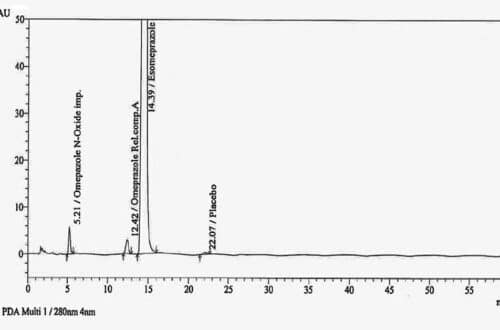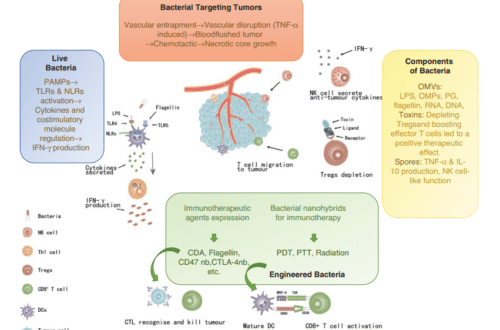BIO Integration Journal, Volume 1, Issue Number 1, Publishes
https://www.ingentaconnect.com/content/cscript/bioi
The issue includes four review articles and an opinion article offering insights into different areas of life science in both China and internationally. In this short video extract Professor Phei Er Saw, Executive Editor, BIOI, introduces the first issue:
Featured papers in this issue are:
The first featured article in this issue is an opinion article entitled “The Significance of Interdisciplinary Integration in Academic Research and Application” by authors Phei Er Saw and Shanping Jiang. Interdisciplinary integration is a requirement for disciplinary development in the modern social environment. What can we learn from interdisciplinary integration in COVID19 research? The authors use COVID19 research as an example to emphasize the importance of interdisciplinary, and the realization of, integrative research.
The second featured article in this issue is a review article entitled” Immunoscore Guided Cold Tumors to Acquire “Temperature” Through Integrating Physicochemical and Biological Methods” by authors Jing Liu, Mengze Xu and Zhen Yuan. Immunotherapy for the treatment of tumors has become the most compelling strategy after targeted treatment, especially for lung cancer, melanoma, and some blood cancers. In this paper, the authors summarize the use of immunoscore, which provides a better prognosis for cancer patients. The authors also outline the features of the most difficult-to-treat and challenging cold tumors and potential approaches to transform “cold” tumors into “hot” tumors.
The third featured article in this issue is a review article entitled ”Nanobiohybrids: A Synergistic Integration of Bacteria and Nanomaterials in Cancer Therapy” by authors Yuhao Chen, Meng Du, Jinsui Yu, Lang Rao, Xiaoyuan Chen and Zhiyi Chen. Developing targeted drug delivery systems is of great significance in selectively delivering drugs to tumor regions. Since the low tumor-targeting ability of nanomaterials limits their clinical application, the authors focus on the usage of nanobiohybrids constructed by the combination of bacteria and nanomaterials. These have many usage applications, including tumor targeting ability, genetic modifiability, programmed product synthesis, and multimodal therapy. Bacteria-based nanobiohybrids have the potential to provide a targeted and effective approach for cancer treatment.
Other articles published in the issue include:
Editorial
Introducing a New Journal: BIO Integration
Zhiyi Chen, Pintong Huang
Review Articles
Advances in the Production of Minor Ginsenosides Using Microorganisms and Their Enzymes
Almando Geraldi
Peng-Peng Xue, Jian-dong Yuan, Qing Yao, Ying-Zheng Zhao and He-Lin Xu
To support the launch of the journal a BIO Integration (BIOI) virtual conference series (Online webinars supported by live question and answer sessions) is being held between June and September 2020 covering topics of interest to the BIO Integration community.
A full video of the first session in the series, Integration and Interdisciplinarity in Academia, held on 25 June 2020, can be viewed at:
Sessions as follows:
| Session | Topic | Speaker |
| 1 | Opening Remarks 00:00:00 – 00:03:36 | Professor Phei Er Saw Sun Yat-sen University, China |
| 2 | Theranostics in Cancer Therapy: Integration for Transformative Research. 00:04:09 – 00:22:35 | Dr Xiaoyuan (Shawn) Chen National Institutes of Health, Bethesda, MD, USA |
| 3 | Integration of Computational Statistics with Pharmaceutical Sciences for the Development of Novel Drug Products: A Perspective Analysis. 00:22:56 – 00:54:21 | Professor Farrukh Rafiq Ahmed University of Karachi, Pakistan |
| 4 | Black Tattoo Ink Under Sonication. (Integration of Ultrasound, Material Science and Microscopy). 00:54:39 – 01:12:36 | Professor Michiel Postema University of Witwatersrand, Johannesburg, South Africa |
| 5 | Public Health Emergency and Digital Epidemiology: COVID-19. 01:13:00 – 01:38:07 | Professor Wai kit Ming The Chinese University of Hong Kong, China |
Upcoming topics – dates and times to be confirmed:
July 2020 Frontiers and Interdisciplinarity in Nanomedicine
September 2020 Frontiers and Interdisciplinarity in Imagine Medicine and AI



